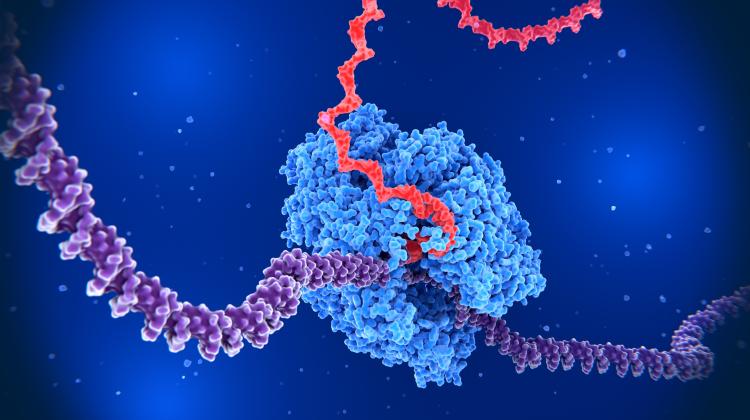Geneticist: Cancer in the family? Test your DNA
 Photo: Fotolia
Photo: Fotolia
Testing DNA for diseases does not always make sense. But if there are frequent cancers in the family, it is worth checking the predisposition to the disease, geneticist Prof. Katarzyna Tońska argues in an interview with PAP.
A growing number of companies in Poland offer DNA testing in order to determine the predispositions for various types of diseases, but also to choose the right diet and even the path of life for a child.
Prof. Katarzyna Tońska from the Institute of Genetics and Biotechnology, Faculty of Biology, University of Warsaw, explains in an interview with PAP whether it is always sensible to carry out a DNA test to determine your health.
"I see the key role of the family doctor, who should conduct a thorough interview during the first visit, not only about your health, but also your family" - says Prof. Tońska. In her opinion, if there have been cases of cancer among relatives (parents, grandparents), it is worth testing for predisposition to the disease. Such tests may be recommended by doctors in a genetic clinic and some of them are reimbursed by the National Health Fund.
The patient receives information about the probability (expressed as a percentage) of a particular type or type of cancer. The researcher emphasizes that it is never a sentence, only a probability, although sometimes it is very high. Those interested can also test their DNA for pathogenic variants of all known cancer predisposition genes; in such event, more fragments of genetic material are analysed.
"Remember that even if predisposition is not detected, it does not mean that you will never develop certain disease, because the cause does not have to be genetic. That is often the case with lung cancer that is associated with smoking" - the researcher points out.
She reminds that in a sense, even the predispositions related to the tendency to catch colds and catarrhs or pneumonia are genetically determined, because they may be due to the abnormal functioning of the immune system. Such tests could also be offered commercially.
According to Prof. Tońska, it is worth to carry out genetic test if a disease occurs in your family more often than in the entire population. For example, it is worth checking your genetic predisposition to Alzheimer`s disease, especially when it occurs in relatives at a young age.
What to do with the information obtained from a genetic laboratory? Action is not always possible. The patients decide on what steps they will take - whether, in the case of, for example, detecting a high predisposition for breast cancer, to have the breast removed or not. When detecting predisposition to Alzheimer`s disease, the decisions may be different: not having children or getting married.
"In other cases, the solution is increased control with the help of various other methods. The fight against the disease can be simpler if it is detected at an early stage" - the researcher adds.
Some companies offer DNA testing of children in terms of their predispositions to sports, for example. Tońska is sceptical about such analyses. She notes that the result may be simply unreliable - for example a gene related to musculature may be tested, but this is not always a key factor in a sports career. However, when a child has autism, the professor believes that "genetic tests might be worth doing".
"Especially if autism is accompanied by other symptoms, such a test should be performed. But take into account that even with the use of the latest methods, in most cases the cause will not be discovered because autism is usually a result of many factors, including environmental ones" - she explains.
If the genetic cause can be determined - the researcher adds - it may affect the treatment or prognosis of the child`s development to a certain extent, and enables genetic consultation - determining the probability of autism in the next child.
According to the geneticist, you can do a DNA test to find out if there is a risk that your planned child will develop diseases such as cystic fibrosis or phenylketonuria. It is a test for pathogenic variants of the gene in both the mother and the father; the combination of such pathogenic variants causes the disease in the child. "When it turns out that the probability of getting sick is high, you can decide to do prenatal tests" - she says.
The expert is sceptical about DNA testing to select of the "perfect diet". "In the case of nutritional problems, it is better to perform specific diagnostic tests to detect certain diseases or food intolerances, instead of looking for predispositions to them - and this, often very unclear answer, will be the result of genome analysis" - she adds.
PAP - Science in Poland, Szymon Zdziebłowski
szz/ agt/ kap/
tr. RL
Przed dodaniem komentarza prosimy o zapoznanie z Regulaminem forum serwisu Nauka w Polsce.



















